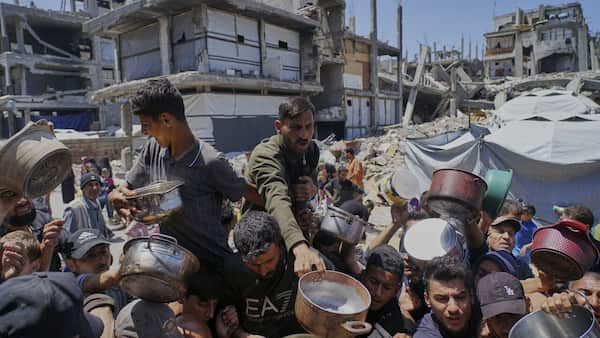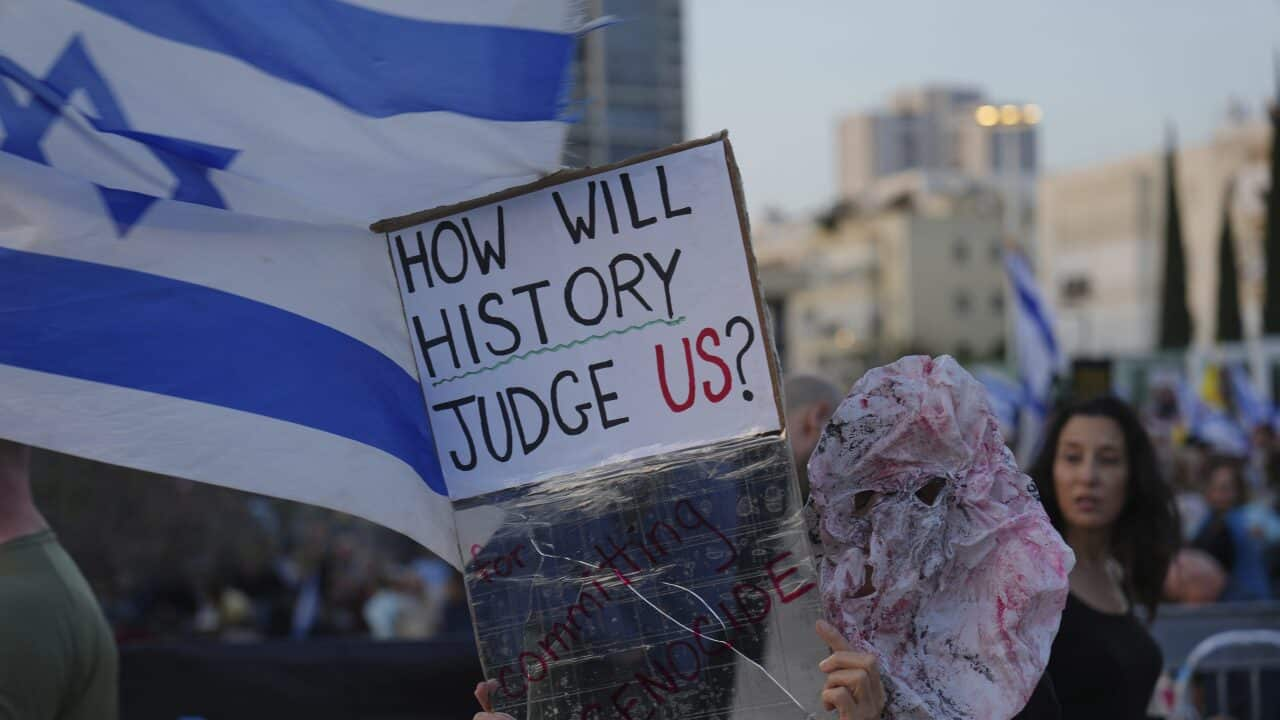Yemen's Huthi rebels on Monday blamed Washington for around 10 strikes in and around the capital Sanaa after a missile fired by the Iran-backed group struck the area of Israel's main airport.
The Huthi-run Saba news agency said the strikes included two targeting Arbaeen street in the capital as well as one on the airport road, blaming them on "American aggression".
The rebels' health ministry said 14 people were wounded in the Sawan neighbourhood, according to Saba.
The Huthis, who control swathes of Yemen, have launched missiles and drones targeting Israel and Red Sea shipping throughout the Gaza war, saying they act in solidarity with Palestinians.

The Houthis claimed responsibility for the missile strike that struck near Ben Gurion Airport, the latest in a string of attacks. Source: EPA / Abir Sultan
The military confirmed that the attack, which gouged a large crater in the perimeter of the airport, had struck despite "several attempts... to intercept the missile".
In a video published on Telegram, Israeli Prime Minister Benjamin Netanyahu vowed a response to
He said Israel had in the past "acted against" the Iran-backed rebels and "will act in the future".
"Attacks by the Houthis emanate from Iran. Israel will respond to the Houthi attack against our main airport and, at a time and place of our choosing, to their Iranian terror masters," Netanyahu said on X.
In a separate video issued by his office, he said: "We will do what we need to do to take care of our security, to respond effectively, and to give Iran due warning that this cannot continue."
Houthis later said in a statement they would impose "a comprehensive aerial blockade" on Israel by repeatedly targeting its airports, in response to Israel expanding its "aggressive" operation in Gaza.
Most attacks from Yemen have been intercepted by Israel's missile defence systems, though a drone strike hit Tel Aviv last year.
The weekend's missile was the only one of a series launched since March that was not intercepted.
The military confirmed the attack, which gouged a large crater in the perimeter of Tel Aviv's Ben Gurion Airport, was launched from Yemen and had struck despite "several attempts ... to intercept the missile".
LISTEN TO

UN warns two-state solution in the Middle East is on the brink of disappearing
SBS News
07:29
Later on Sunday, the Israeli military concluded an assessment and cited a technical issue with the interceptor launched toward the missile.
"Initial findings reveal no malfunction in the detection procedure, interception systems, or Homefront Command alert mechanisms," the army said in a statement.
A reporter from the Reuters news agency at the airport heard sirens and saw passengers running towards safe rooms.

According to Israel's military spokesperson, a ballistic missile fired from Yemen hit the perimeter of Tel Aviv's Ben Gurion Airport. Source: EPA / Abir Sultan
The Israeli ambulance service said eight people were taken to hospital for mild to moderate injuries.
An Israeli police commander, Yair Hetzroni, showed reporters a crater caused by the impact of the missile, which airport authorities said landed beside a road near a terminal 3 parking lot.
The Israel Airports Authority said normal operations had resumed after reports of air traffic being halted and access routes to the airport being blocked.
Separately, army chief Lieutenant General Eyal Zamir confirmed media reports of a planned expansion of the Gaza war.
"This week we are issuing tens of thousands of orders to our reservists to intensify and expand our operation in Gaza," Zamir said in a statement.
The army would destroy all Hamas infrastructure, "both on the surface and underground", he added.


